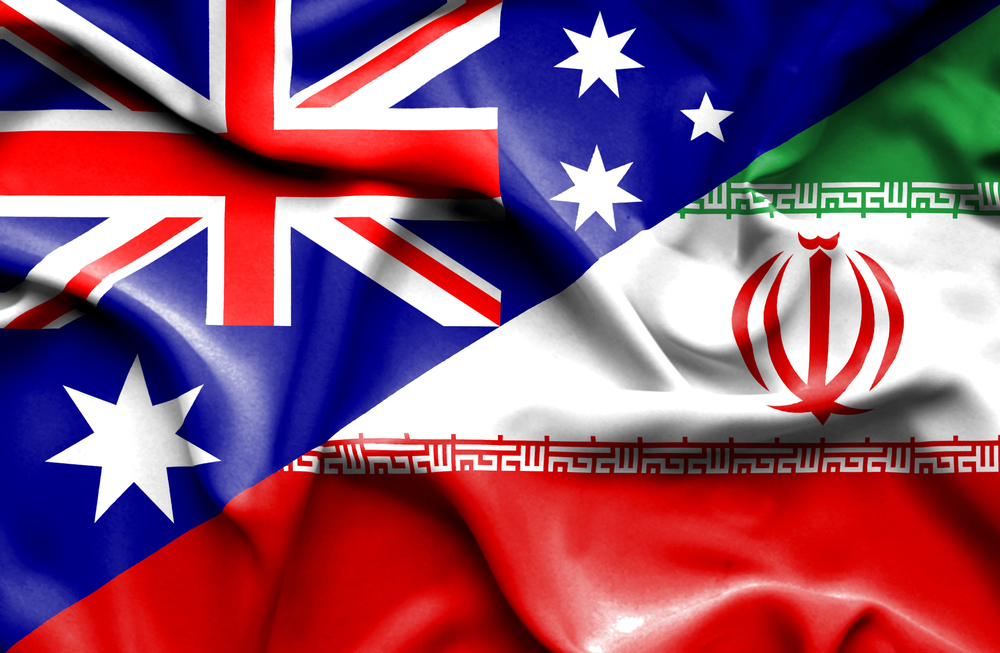FRESH AIR
Australia needs to join the US and UK in sanctioning Hamas and Iran
January 12, 2024 | Oved Lobel

A month after the United States and United Kingdom jointly imposed sanctions on Hamas facilitators and officials, the Australian Government has once again failed to follow suit, reinforcing a trend observed for more than a year.
This marks the second such coordinated sanctions package and the fourth consecutive US action against Hamas since October 7. In addition, the two countries sanctioned Iran’s Islamic Revolutionary Guard Corps (IRGC) Qods Force, including its leader Esmail Qaani and its entire Palestine Branch, due to their backing of Hamas and Palestinian Islamic Jihad (PIJ). The UK also targeted the representatives of Hamas and PIJ in Iran.
These sanctions were the first imposed under the UK’s expanded Iran sanctions regime, which entered into force on December 14 and grants its government “extensive new powers to disrupt Iran’s hostile activities in the UK and around the world” and the authority to impose “new restrictions on Iran’s drone programme and shipping”.
Australia is, as usual, inexplicably and glaringly absent from these coordinated actions to exert pressure on the Iranian regime and its regional appendages.
Sanctions have thus far been imposed by Australia against Hamas only once since October 7, and these were uncoordinated with the US and UK, which announced their own sanctions four days prior on November 14.
Australia’s refusal to coordinate sanctions with its allies against the Iranian regime has been an unfortunate pattern since the protests sparked by the murder of Mahsa Amini in September 2022 and the beginning of the regime’s substantial material support for Russia’s invasion of Ukraine around the same time.
This is not because the Australian Government lacks the tools for effective action; on the contrary, it took the step of expanding Australia’s Iran autonomous sanctions framework in July. This expanded framework, however, is significantly more limited than the UK’s new Iran sanctions regime, and despite the new authorities granted under this framework, the Australian Government has barely utilised them. It has only targeted Iran’s regime under the expanded sanctions framework once, on September 13, and solely for domestic human rights abuses.
Australia has not sanctioned Iran for its material support of Russia’s invasion of Ukraine since March 20 despite the drastically increasing levels of this support. Its most recent sanctions against Iran, for any reason, were imposed three months ago.
On February 1, the Senate’s Foreign Affairs, Defence and Trade References Committee released its report on its inquiry into human rights implications of recent violence in Iran, which presented 12 key recommendations, including the listing of the IRGC as a terrorist organisation under Australia’s Criminal Code. The Government ignored the report for more than seven months and then rejected nearly all of the recommendations, including the IRGC listing.
This rejection, on dubious legal grounds, is particularly puzzling given the nearly unprecedented cross-party support in Australia, including from the Coalition, Teals and Greens, for such a listing. Shadow Foreign Minister Senator Simon Birmingham reiterated bipartisan support for the listing on October 22 following a call from US State Department a week earlier urging other countries to designate the IRGC.
Furthermore, as I’ve written before, “It defies all logic that Hamas, PIJ and Hezbollah, three organisations that are wholly dependent upon and beholden to – and in the case of the latter two, essentially branches of – the IRGC, should be listed under Australia’s Criminal Code while the IRGC itself escapes listing.”
Now the Australian Government has doubled down on its refusal to coordinate with the US and UK when it comes to Iran, pledging fewer than a dozen personnel and declining a request to send a ship to the Red Sea as part of a US-led multinational task force to stop Houthi attacks against international vessels. The Houthis, more properly known as Ansar Allah, are in essence the IRGC’s branch in Yemen and have been firing salvoes of missiles and drones not only at international vessels, but at Israel, as well.
While Australia signed onto a joint statement with the US and several other countries warning the Houthis against further attacks on January 3 and “supported” – but did not participate in – joint US and UK strikes on Houthi targets, it has failed to sanction those helping Iran finance the Houthis, as the US did on December 28.
Australia’s relative inaction against Hamas and now the Houthis should be seen as an extension of its consistent refusal to align with allies whenever it comes to Iran. These ostensibly separate regional issues are in reality a single issue: the IRGC. It is well past time for Australia to list the organisation under its Criminal Code.
As for Hamas, if Australia seeks a “sustainable ceasefire” in Gaza, then it can help bring that about by coordinating with its allies to sever the financial lifelines of the terrorist group. Only with the dismantling of Hamas’ regime can there ever be any sustainable outcome in Gaza. Australia can contribute to this by not being absent from the next round of jointly announced sanctions.
RELATED ARTICLES

‘Time’s up for talk’: Joel Burnie discusses Antisemitism Envoy’s report on Sky News

‘Optimism’ for Hamas to ‘exile’ their power and create a permanent ceasefire with Israel: Joel Burnie on Sky News

Australian government’s response to Iran-Israel conflict ‘disappointing’: Paul Rubenstein on Sky News




















